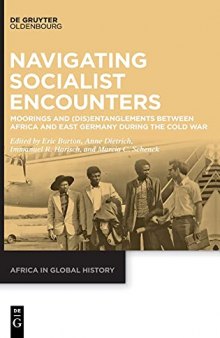 جزییات کتاب
جزییات کتاب
The 'global' turn in historical research has yet to fully incorporate the African continent. This series aims to promote historical scholarship which addresses the global connections which shaped African histories; theories and methods of doing Africanist global history; and studies of the limitations of global history from an Africanist perspective.Africa in Global History welcomes (but is not limited to) monographs and edited volumes which tackle the themes of intervention and development, migration and colonial inter-connections, and trade and labour. Throughout much of modern African history, actors have been focused on visions of African futures. In these visions, supposedly 'traditional', 'backward' or 'under-developed' societies would be replaced. This book series addresses this long history of interventions into African societies from both internal and external groups. The series will trace changing patterns of migration, often associated with the establishment of new settlements and colonies, or changing trade or labour relations. By taking a comparative approach, the series will also intervene into the pressing debates on nationalism, nationalist sentiment and xenophobia (in all its complications); tradition and neo-traditionalism; and the historical processes which shaped Africa's place in the world.The books in this series will both address the particular, regional manifestations of this phenomenon, disaggregating the monolithic notion of 'Africa in the World', but also examine ways that 'Africa as a country' has been created through discourses of civilisation, improvement and development.We particularly encourage submissions from Africa-based scholars, and we are committed to exploring innovative new methods to support publication. One of the objectives of this series would be to support African scholars to create new research collaborations and publish their research.



 دانلود کتاب
دانلود کتاب

 جزییات کتاب
جزییات کتاب


 این کتاب رو مطالعه کردید؟ نظر شما چیست؟
این کتاب رو مطالعه کردید؟ نظر شما چیست؟
